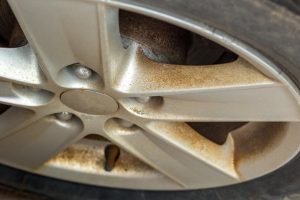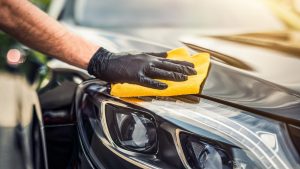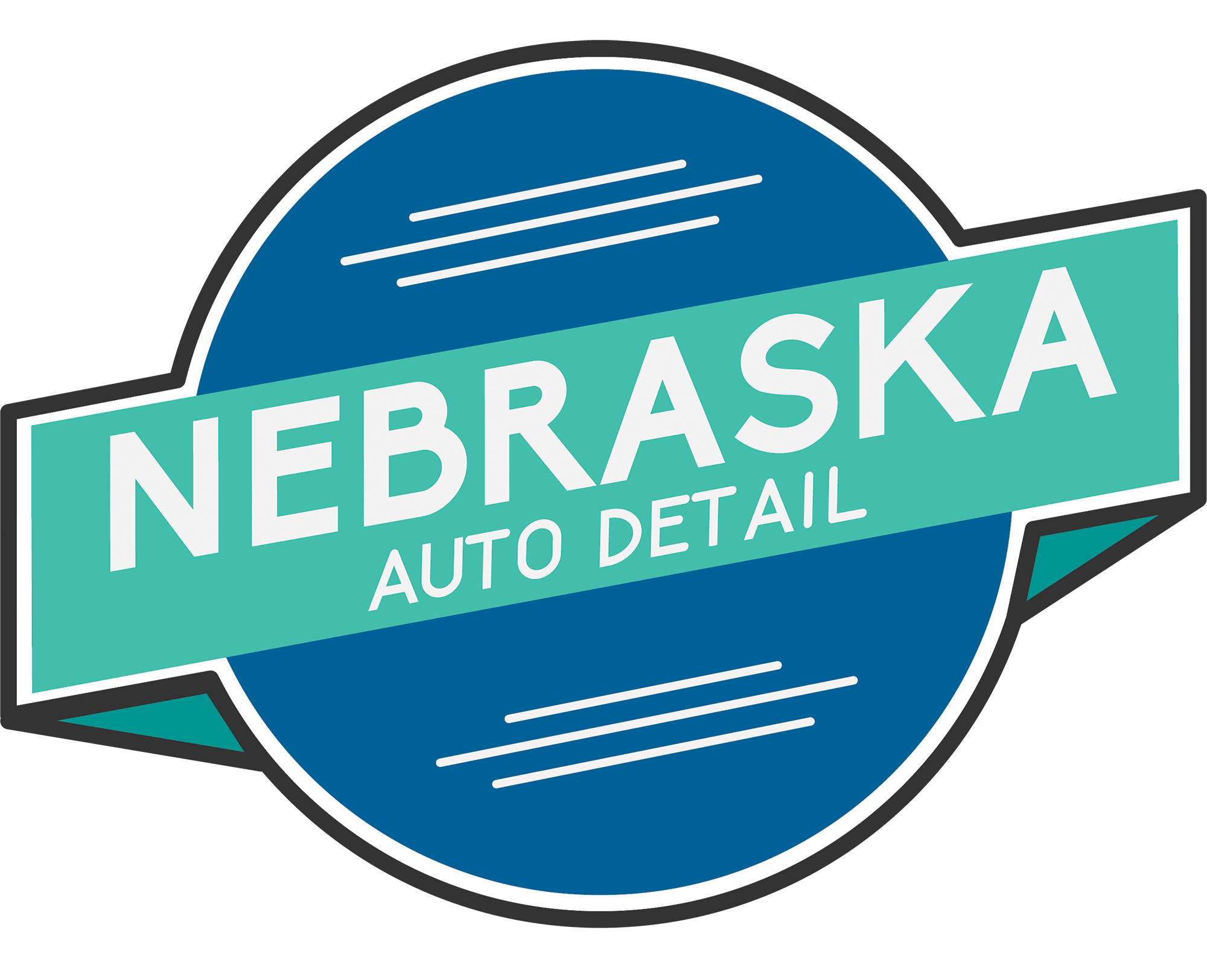What Is Iron Decontamination?
There are many steps involved in professional auto detailing. One of the most important is known as iron decontamination. This refers to the process of removing metallic contaminants from a vehicle’s exterior. When combined with a clay bar, it’s an excellent way to completely clean almost any paintjob. Let’s take a closer look at what iron decontamination is and why it’s so important when detailing.
Iron Decontamination
Our vehicles are exposed to a lot of harsh substances. Bugs, road grime, plant pollen, and bird droppings can all build up and quickly damage any clearcoat. Brake dust is another common contaminant, though it can be easy to overlook.
 Believe it or not, brake dust is everywhere out on the road. It’s a natural and unavoidable by-product of everyday driving. While newer vehicles with ceramic pads may produce little to no brake dust, older vehicles tend to produce tons of it. That’s because semi-metallic brake pads often contain iron, which increases friction. With regular use, metallic brake rotors, shoes, and pads produce iron particles that combine with other contaminants. The resulting mixture can wreak havoc on a vehicle’s wheels, suspension, and exterior paint.
Believe it or not, brake dust is everywhere out on the road. It’s a natural and unavoidable by-product of everyday driving. While newer vehicles with ceramic pads may produce little to no brake dust, older vehicles tend to produce tons of it. That’s because semi-metallic brake pads often contain iron, which increases friction. With regular use, metallic brake rotors, shoes, and pads produce iron particles that combine with other contaminants. The resulting mixture can wreak havoc on a vehicle’s wheels, suspension, and exterior paint.
Iron decontamination serves to remove brake dust and other metallic particles from a vehicle’s exterior. This is important because brake dust can be corrosive and extremely abrasive. When left unaddressed, it may create scratches and pits as it embeds within a vehicle’s paintjob. Excessive brake dust can even damage alloy wheels and severely reduce braking performance.
Professional auto detailers often use an iron decontamination spray to remove brake dust. These products chemically bind with iron particles, then change color as they significantly speed up the oxidation process. An iron decontamination spray can remove the majority of brake dust from a vehicle’s exterior before a clay bar gets the rest manually.
Many factors can affect when an iron decontamination is needed. For instance, new vehicles and those parked close to railroads can collect iron particles from nearby trains and rails. Older vehicles with worn, metallic brake pads may also become contaminated more often. That said, most cars and trucks only require iron decontamination once or twice per year, and always before the application of a ceramic coating.
Our Exterior Detailing Process
Iron decontamination is an essential step in every single one of our auto detailing packages. We provide this service because we care deeply about the condition of our customers’ vehicles. There’s simply no way to ensure a complete clean without it.
 Our exterior detailing process always begin with a thorough hand wash. In our professional opinion, careful hand washing is the best way to clean any vehicle. We begin with the body and exterior windows before working our way down to the wheels, tires, and trim.
Our exterior detailing process always begin with a thorough hand wash. In our professional opinion, careful hand washing is the best way to clean any vehicle. We begin with the body and exterior windows before working our way down to the wheels, tires, and trim.
Then, we perform our standard iron decontamination process. This removes most lingering metallic particles from the vehicle’s surface. We always pay special attention to problem areas like wheels, wheel wells, and bumpers. Next, we use a clay bar to gently remove all microscopic contaminants from the exterior before polishing any chrome. This leaves the vehicle’s paintjob completely smooth and ready for a final polish, sealant, or ceramic coating.
Depending on the exact detailing package, we apply either a paint sealant or polish, or both. These offer anywhere from three months to a full year of protection from the elements. If a vehicle comes in for a ceramic coating instead, it first receives a one-step paint correction. This ensures that the ceramic coating can properly bind to the paint and withstand multiple years of heat, brake dust, sunlight, and chemicals.
Iron decontamination is crucial for both new and used vehicles. It can remove built-up iron particles that may damage paint and critical components over time. That’s why we include it in each one of our detailing packages. If you’re curious about iron decontamination, ceramic coatings, or auto detailing in general, then we welcome you to contact us for more information. We look forward to helping you get the most out of your vehicle today.
